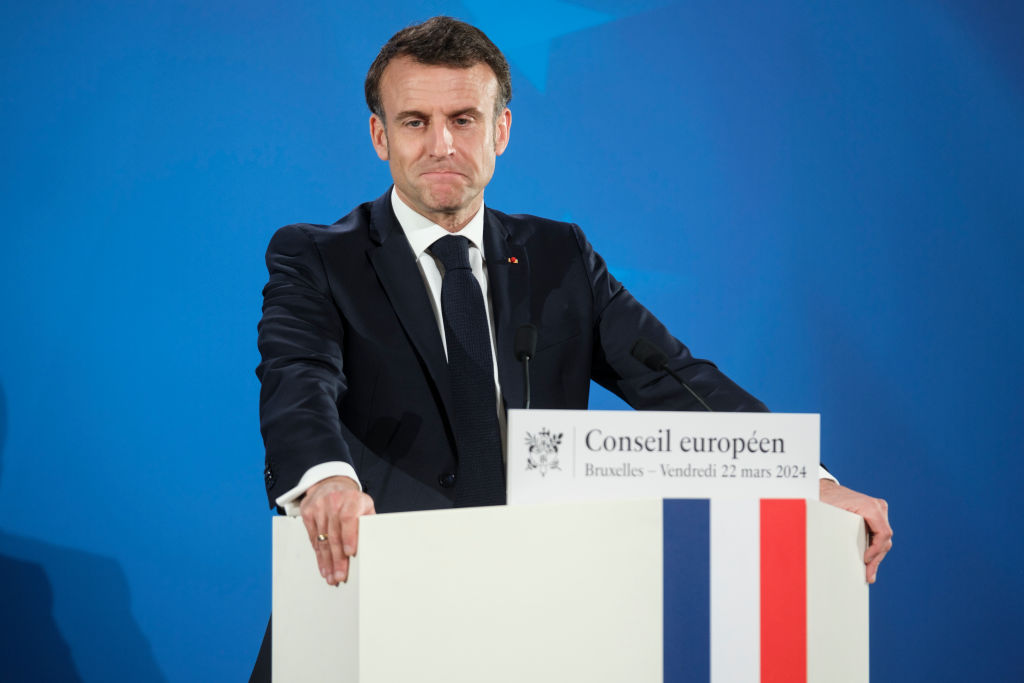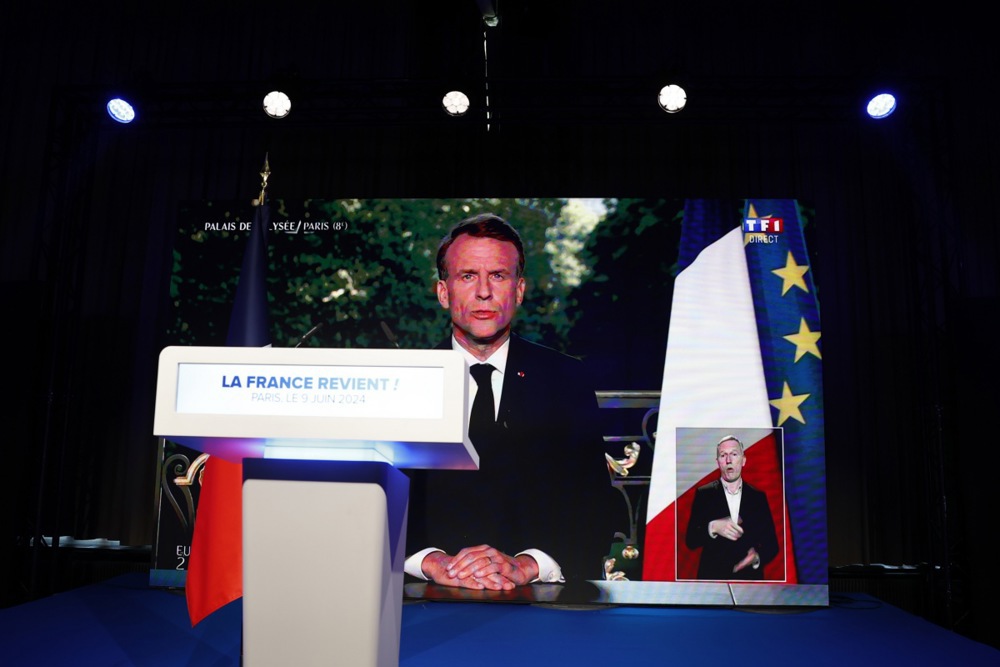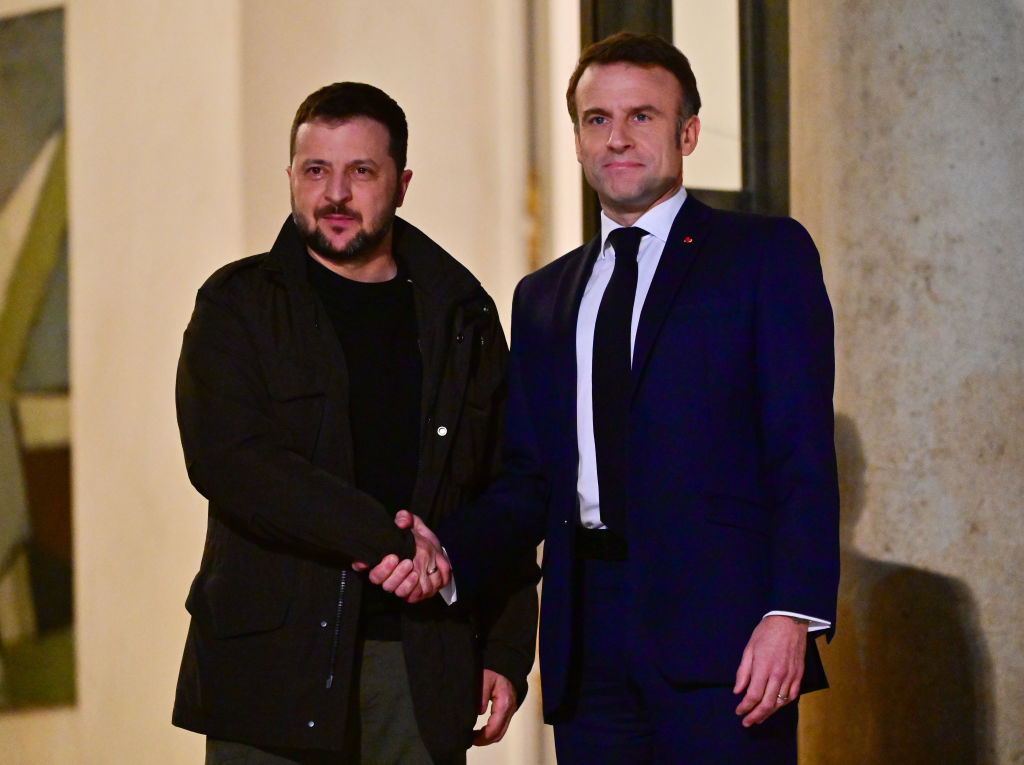French President Emmanuel Macron is looking increasingly isolated following his June 9 decision to dissolve the French National Assembly after a crushing defeat in the European Parliament elections.
Old allies have started to abandon him.
On June 23, in an interview with TV news channel LCI, Interior Minister Gérald Darmanin hinted at a possible political alliance with former Prime Minister Édouard Phillipe.
“I have known Édouard Philippe for a long time and we said to ourselves that we had to build something together tomorrow, probably something that would allow us to win in 2027,” he said
This statement comes after his Gérald Darmanin implied a possible departure from his role in the government after the French snap general elections on June 21.
“If I’m beaten, I’ll obviously resign the same evening. If there’s a majority, the President of the Republic will choose his government, and if the ultra-left or ultra-right wins, it’s obvious that as of Monday morning, I’ll no longer be a minister,” Darmanin stated.
Even if Macron’s Renaissance party prevails, he may no longer be able to rely on Darmanin, a loyalist since 2017 who has survived multiple cabinet reshuffles.
“The President will decide what to do, but I won’t be a minister for another day,” Darmanin added.
French President Emmanuel Macron has dissolved the French parliament after a crushing defeat in the European Elections. https://t.co/E3Aw1nGF9j
— Brussels Signal (@brusselssignal) June 9, 2024
He is not the only one distancing themselves from Macron.
On June 20, in an interview with TV5 Monde, Economy Minister Bruno Le Maire torpedoed Elysée advisers who, according to him, had heavily influenced the decision to dissolve the French National Assembly.
Le Maire described the President’s advisers disparagingly. “The parquet floors of the ministries and palaces of the Republic are full of woodlice,” he said.
“There have always been woodlice. They’re part of French political life, they’re in the parquet floors, in the grooves of the parquet floors. It’s very difficult to get rid of them. The best is to not listen to them,” he added.
Also on June 20, Macron’s former prime minister and ally Édouard Philippe heavily criticised the President’s decision to call a snap election.
« C’est le président de la République qui a tué la majorité présidentielle » Edouard Philippe @TF1Info
pic.twitter.com/1I7czHkvwk— Paul Larrouturou (@PaulLarrouturou) June 20, 2024
“He made his decision alone. It wasn’t me who left [the government], it wasn’t the frondeurs [MPs who are part of the governing majority] opposing the government who upset him [and led to dissolution of assembly],” he said.
Philippe asserted that Macron had “killed the presidential majority” by deciding to dissolve the National Assembly. He said there was a need to “create a new parliamentary majority, which will operate on a different basis”.
Macron’s unpopularity was highlighted in the electoral strategy for the upcoming vote.
His candidates for the ballot no longer use his image on campaigning posters but rather use those depicting the Prime Minister Gabriel Attal.
This shift in campaign strategy underscores for many Macron’s waning influence. In the middle of the election campaign, Attal was reportedly confronted by one disgruntled citizen who stated: “You’ll have to tell the President to shut up.”
The call for snap elections sent shockwaves through French politics, with the President asserting that the ballot aimed to “give clarity” to the political landscape.
As yet, no political force holds a clear majority in parliament.
On Sunday, June 23, Emmanuel Macron addressed a “letter to the French” via the regional press justifying his decision to call for a snap election.
“This dissolution was the only possible choice both to take note of your vote in the European elections and to respond to the disorder in place and the greater disorder to come.”
In his letter, the President puts the Rassemblement National and the left-wing coalition face-to-face, criticising their programmes and emphasising that his way is the most viable solution.
“This third way is the best for our country because it’s the only one that can guarantee a barrage against both the far-right and the far-left in the second round,” he wrote.
According to the latest Ipsos poll the president’s party failed to break through the 20 per cent barrier with just a little less than a week from the vote.
National Rally is currently ahead with 31 per cent of the vote, with the left-wing coalition right behind with 29,5 per cent.
The French electorate goes to the polls on June 30 and July 7.
The CAC 40 index has plunged 4.88 per cent since June 10 following the unexpected dissolution of the National Assembly and French President Emmanuel Macron’s June 9 call for snap national elections.https://t.co/W8eICJbh4v
— Brussels Signal (@brusselssignal) June 14, 2024





